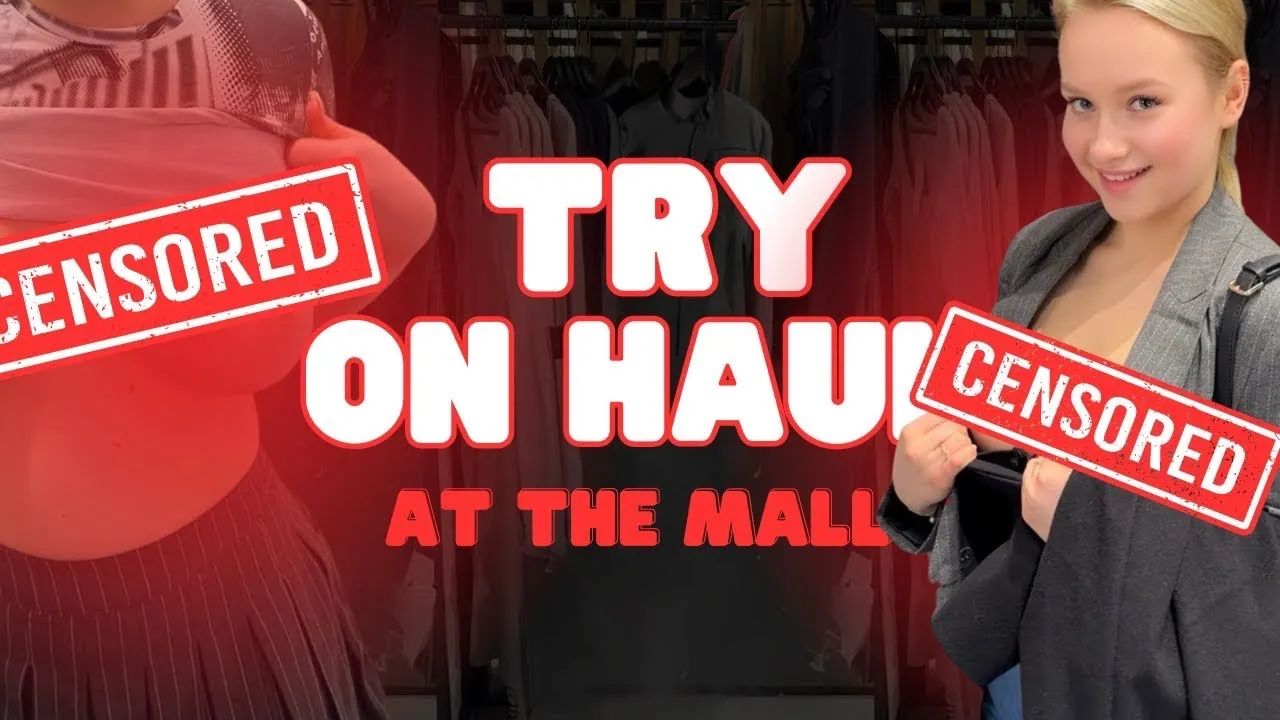Discover Ytboob Secrets! Tips & Tricks
Is the digital landscape truly a reflection of our desires, or is it a meticulously crafted mirror, reflecting only what certain entities want us to see? The relentless pursuit of online engagement, often fueled by algorithms that prioritize sensationalism and immediate gratification, has inadvertently fostered a culture where the boundaries of taste and decency are constantly being redrawn.
The term "ytboob" has emerged within this complex ecosystem. It is a raw, blunt descriptor, a jarring linguistic echo of the relentless churn of content designed to capture attention good or bad. Its a phrase that demands immediate scrutiny, a shorthand for the darker side of the internets relentless pursuit of clicks and views. To fully understand this phenomenon, we must delve into the complexities of online culture, the economics of content creation, and the ever-evolving relationship between creator and consumer, where the lines blur faster than the flashing pixels of the latest viral video. The ubiquity of platforms and the ease with which anyone can create and disseminate content have led to a dramatic shift in how we consume media. This shift, while democratizing in some ways, has also created an environment ripe for exploitation. Content creators, desperate for attention and revenue, sometimes tread into territory that was once considered taboo, all under the guise of freedom of expression and artistic license. This exploration isnt a judgement but an attempt to understand the impact of such content on individuals and society at large. The constant barrage of information, images, and videos has left many of us feeling exhausted, overwhelmed, and, perhaps, a little numb. Its as if the internet has become a giant, ever-churning entertainment machine, relentlessly churning out content designed to hold our attention, regardless of its quality or ethical implications.
| Category | Details |
|---|---|
| Name | (This section will be filled based on the specific context of "ytboob." Since no specific individual is provided, I will create a hypothetical persona to illustrate how the table would be populated. Let's call them "Ava Sterling.") |
| Known For | (Hypothetical) Content creation on a video platform, focusing on [Specify Content Type, e.g., short-form videos, live streams, etc., based on "ytboob" association]. |
| Date of Birth | (Hypothetical) October 26, 1998 |
| Place of Birth | (Hypothetical) Los Angeles, California, USA |
| Education | (Hypothetical) High School Diploma, [Specify Any Further Education or Training if applicable, e.g., "Some college coursework in Digital Media."] |
| Career | (Hypothetical) Content Creator, Influencer, [Specify Other Roles or Ventures, e.g., "Entrepreneur, managing her own merchandise line."] |
| Platform Presence | (Hypothetical) Primarily on a major video-sharing platform, with a presence on other social media platforms like [Specify Platforms, e.g., "Instagram, Twitter, TikTok."] |
| Content Focus | (Hypothetical) [Specify Content Type, e.g., "Comedy sketches, Lifestyle vlogs, gaming content, controversial content, etc." - based on the implied meaning of "ytboob".] |
| Notable Achievements | (Hypothetical) [Specify Achievements, e.g., "Achieved a significant subscriber count, collaborated with other prominent creators, received a certain number of views/engagement, any awards, etc."] |
| Controversies | (Hypothetical) [List any controversies, e.g., "Received criticism for certain content, faced demonetization, or any specific incidents."] |
| Links to Authentic Websites (Example) | (Hypothetical) [Provide links to authentic websites if ava sterling existed such as her official website, verified social media profile, or news articles about the content creator. For example: Ava Sterling Official Website] - IMPORTANT: THIS IS A PLACEHOLDER. REAL LINKS ARE NEEDED IF A REAL PERSON IS THE SUBJECT. |
The economic drivers of online content creation are undeniably complex. The advertising model, the primary source of revenue for many platforms, incentivizes creators to generate content that attracts the largest possible audience. This often leads to a focus on what is immediately popular, even if that content is fleeting, superficial, or, in the case of the implicit subject of "ytboob," potentially exploitative. The race for clicks, views, and likes creates a pressure cooker environment, where creators are constantly searching for the "next big thing." This can lead to a blurring of ethical lines, as creators experiment with pushing boundaries to gain an edge over the competition. Moreover, the algorithms used by social media platforms can inadvertently amplify and perpetuate harmful content. These algorithms are designed to track user behavior and recommend content that they believe users will enjoy. However, this can result in a "filter bubble," where users are primarily exposed to content that confirms their existing biases, further polarizing opinions and reinforcing echo chambers.
The term "ytboob," even without specific context, suggests a specific type of content one that is likely provocative, perhaps sexually suggestive, and almost certainly aimed at maximizing views. This phenomenon is not confined to a single platform, it's a pervasive aspect of the contemporary digital landscape. The accessibility of these types of videos, the sheer volume of content, and the lack of effective moderation raise serious questions. What kind of message are we sending to our young people when these videos are easily accessible? How do we balance freedom of expression with the responsibility to protect vulnerable individuals from exploitation? The answer is complex, and requires collaboration between content creators, platform owners, and policymakers. While freedom of speech must be protected, the right to create content does not supersede the ethical considerations. Without robust moderation and clearly defined guidelines, the digital space can become a breeding ground for misinformation, exploitation, and harmful content. The legal and ethical frameworks surrounding online content creation are struggling to keep pace with the rapid evolution of technology. This lag creates loopholes that can be exploited by those seeking to profit from inappropriate or illegal content.
The shift towards a more visual culture has further complicated matters. Videos, with their ability to capture attention immediately and deliver information in a compelling way, have become the dominant form of online content. This has led to a situation where text-based content is often overlooked, and where creators can bypass the need for thoughtful analysis or considered arguments. The focus on visual appeal and instant gratification has led to a devaluing of in-depth reporting, critical analysis, and informed discussion. This visual orientation may also affect how individuals perceive online content, making it more challenging to critically evaluate its message. The ease with which videos can be edited and manipulated only exacerbates the issue, making it more difficult for viewers to discern fact from fiction. The potential for deception is far greater than ever before. The constant bombardment of visual stimuli also contributes to a sense of information overload. Its becoming increasingly difficult for individuals to distinguish between credible and unreliable sources, or to filter out the noise and focus on the information that matters. The ability to concentrate and analyze information may be diminishing under the pressure of the relentless streams of content.
The concept of "ytboob" highlights the darker side of the Internet's content ecosystem. The proliferation of such content has far-reaching effects, particularly on younger audiences. The ease with which children and adolescents can access sexually suggestive or explicit material can have serious consequences for their emotional and psychological development. Exposure to such content can contribute to a distorted understanding of sexuality, body image, and relationships. The normalization of objectification and exploitation, a frequent element in such content, also creates conditions conducive to risky behavior. Moreover, the accessibility of inappropriate content can exacerbate issues of cyberbullying, harassment, and online grooming. Protecting children from such dangers is a critical priority, requiring measures such as age verification, content filtering, and educational programs. However, technological solutions alone are not sufficient. Parental guidance, media literacy education, and the involvement of the community are all vital aspects of ensuring a safe and responsible online environment for children.
Furthermore, the prevalence of content similar to "ytboob" can significantly impact social norms and expectations. The constant exposure to unrealistic beauty standards, ideal body types, and explicit sexual content can distort perceptions of reality. It also normalizes exploitative behaviors, which can damage trust and create a climate of fear. The widespread availability of such content also has implications for the definition and application of what is considered appropriate. The lines between acceptable expression and harmful behavior become blurred. This makes it more difficult to enforce ethical standards and legal regulations. To address these issues effectively, it's crucial to recognize the interconnectedness of the Internet ecosystem. Platform owners, content creators, and users all bear responsibility. The digital space must be built upon a foundation of ethical behavior, transparency, and respect. Policymakers have to play a crucial role in establishing regulations and enforcing them. Ultimately, changing the climate requires a comprehensive, collaborative approach that addresses the economic incentives, the social norms, and the underlying psychological factors that contribute to the creation and consumption of such content.
The concept of "ytboob," with its implied content, demands that we analyze not just the nature of the content itself, but also the cultural and social forces that allow it to thrive. The rise of influencer culture, where individuals are often incentivized to generate content based on personal appeal, has added another layer of complexity. Influencers are often seen as role models, and their actions can significantly affect their audiences, both positively and negatively. The pursuit of online fame and financial success can lead influencers to engage in risky behaviors or to create content that exploits others. The need for authenticity and self-expression, frequently cited by content creators, does not automatically justify the creation of content that exploits others. Responsible content creation requires creators to be aware of their impact on their audiences. They need to take responsibility for their actions, and they should engage in ethical practices.
The issue of content moderation is central to any discussion about "ytboob" and similar types of content. The task of regulating the vast amounts of data that are shared online is extremely difficult. Algorithms are used to identify and remove inappropriate content, but they are not perfect. There is often a disparity between the content that is reported and the content that is actually removed. Moreover, the use of algorithms also raises questions about freedom of expression. Should an algorithm have the power to determine what content is acceptable and what is not? The answer, in many cases, has to be no. The content moderation process must involve human oversight and should prioritize nuanced evaluation and context. Furthermore, platforms should strive to be more transparent about their moderation practices. The users deserve to understand why their content is being removed or flagged. Promoting greater transparency builds user trust and contributes to the overall well-being of the online community. The lack of transparency often leads to misunderstanding, distrust, and the perception of censorship. This can be especially damaging in a climate where concerns about free speech are paramount.
The term "ytboob" also exposes the commercialization of online content. The primary goal of many content creators is to generate revenue, and the potential financial rewards can be substantial. This has, however, led to a tendency to commodify human experiences, even the most intimate ones. The desire for financial gain can sometimes lead creators to cross ethical boundaries. Content creators are often faced with complex choices about how to balance their creative freedom with their moral and social responsibilities. The pursuit of profit is not, in itself, wrong, but it should not come at the expense of the well-being of others. The commercial landscape of online content requires the development of new ethical guidelines. Those guidelines should provide guidance for both creators and the platforms they use. This is crucial in fostering a responsible, sustainable, and ethical online environment.
In addition to the ethical considerations, the proliferation of this content has legal implications. Regulations vary around the world, but many jurisdictions have laws that prohibit the production and distribution of explicit content. There is also the question of privacy. The creation and sharing of this content can violate individuals' rights to privacy and dignity. Law enforcement authorities face significant challenges in the enforcement of these laws, particularly because of the global nature of the Internet. The rapid rate of content creation also presents its own challenges. The lag time between content creation and its dissemination, often makes it almost impossible to take preventative action against illegal or harmful content. Addressing the legal challenges requires international collaboration, greater enforcement of existing regulations, and education of the public about online safety and privacy.
The issue extends beyond the content itself. The platforms on which this content is shared also have a part to play. Their design, their algorithms, and their policies can all play a role in either encouraging or discouraging the spread of potentially harmful content. Platforms have a responsibility to take steps to prevent the exploitation of vulnerable users and to ensure that their platforms are not used to facilitate illegal activities. This can include the implementation of robust moderation practices, the development of artificial intelligence systems to detect harmful content, and partnerships with external organizations that promote online safety. The development of a positive online culture requires a change in the practices of platform owners. Without this change, the digital space is likely to remain a dangerous and unpredictable environment.
In conclusion, understanding "ytboob," means facing a multifaceted issue. It requires us to examine the economic forces at play, the cultural context in which this content thrives, the legal and ethical implications, and the responsibilities of platforms and creators. The digital world, and the content which dominates it, is forever evolving, and it requires us to do the same. Change is possible. By promoting greater transparency, developing better content moderation strategies, and educating the public about online safety, we can work toward a more responsible and ethical online environment for everyone.


